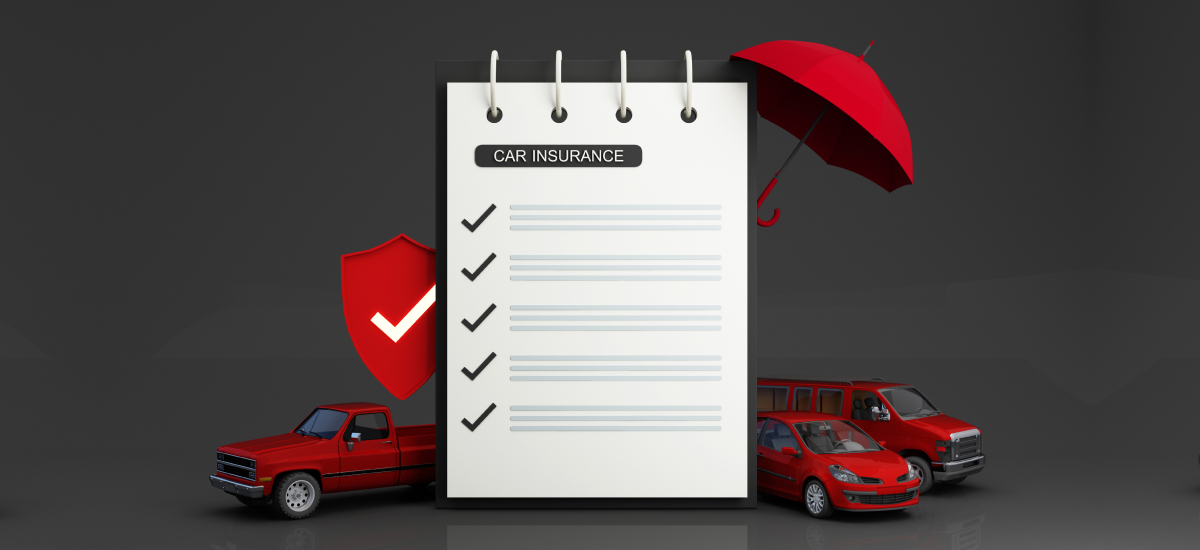As a responsible vehicle owner in India, regularly checking your car insurance status is crucial. Driving without valid insurance is illegal under the Motor Vehicles Act, 1988 and can result in severe penalties. Many people forget to renew their policies on time, which can result in the loss of coverage and financial liabilities in the event of an accident.
Fortunately, you can now conveniently check vehicle insurance status online through various platforms. In this article, we will guide you through the importance of timely renewals and the steps to check car insurance online, ensuring you stay protected on the roads.
Understanding car insurance validity
Before we explore the methods to check your vehicle insurance status online, let's understand what car insurance validity means. Every car insurance policy comes with a specific term, usually one year, during which the coverage remains active.
This period begins on the policy issue date and ends on the expiry date specified in your insurance documents. It is essential to renew your policy before this expiry date to maintain continuous coverage and avoid any lapses.
Importance of checking vehicle insurance status
Regularly checking your car insurance status online offers several benefits:
1. Avoid missing renewal deadlines: By staying informed about the policy's expiry date, you can renew your policy on time and maintain uninterrupted insurance coverage.
2. Prevent legal and financial issues: Driving with an expired insurance policy is a punishable offence. By ensuring your vehicle insurance is always up to date, you can avoid penalties, fines, and legal complications.
3. Ensure continued financial protection: An active car insurance policy safeguards you against financial liabilities arising from accidents, theft, or damage to your vehicle. Timely renewals guarantee that you remain protected.
Also read: Things to check before car renewal
Consequences of not renewing car insurance on time
Failing to renew your car insurance policy before the expiry date can lead to several problems:
· Violation of the Motor Vehicles Act, 1988 regulations results in penalties and fines.
· Loss of the accumulated No Claim Bonus, which offers significant discounts on renewal premiums.
· Higher renewal premiums or the need for vehicle inspection due to policy lapse.
· No financial coverage for accidents or damages during the uninsured period, leaving you vulnerable to expensive liabilities.
Methods to check the car insurance expiry date – H2 Tag
A few offline ways to check your car insurance expiry date are:
1. Policy document: Your physical insurance policy document clearly mentions the coverage start and end dates.
2. Insurer's customer support: You can call the toll-free number of your insurance company and inquire about the validity of your policy.
3. Insurance agent: If you had purchased the policy through an agent, you can contact them to get details about your car insurance expiry date.
4. Visit the RTO: By visiting your Regional Transport Office (RTO) and providing your vehicle registration number, you can get information about your insurance status.
Online methods to check vehicle insurance status
Now, let us explore the convenient online platforms that allow you to check your car insurance status from anywhere, anytime:
1. VAHAN Portal by the Ministry of Road Transport and Highways (MoRTH)
The VAHAN portal, also known as Parivahan Sewa, is the official website of the Ministry of Road Transport and Highways. It provides a wide range of vehicle-related services, including insurance status checks. Here's how you can check vehicle insurance on the VAHAN portal:
1. Visit the official website: parivahan.gov.in or vahan.parivahan.gov.in/nrservices.
2. Look for the 'Know Your Vehicle Details' section under 'Online Services.'
3. Enter your vehicle registration number and the displayed captcha code.
4. Click on 'Search Vehicle' to view your vehicle's insurance status, owner information, and other specifications.
2. Insurance Information Bureau (IIB) Portal
The Insurance Information Bureau (IIB) maintains a central database of all vehicle insurance policies in India. It is a reliable platform to check car insurance online. Follow these steps:
1. Go to the official IIB portal.
2. Fill in your personal details like name, email address, and mobile number.
3. Enter your vehicle registration number and submit the form.
4. The portal will display your insurance policy status, validity period, and the name of the insurance company.
3. mParivahan Mobile App
The mParivahan app, developed by the Ministry of Road Transport and Highways, allows you to access various vehicle-related services, including insurance status checks, on your smartphone. Here's how to use it:
1. Download the mParivahan app from the Google Play Store or the Apple App Store.
2. Select your preferred language (English or Hindi).
3. Choose the 'Check Vehicle Status' option from the main menu.
4. Enter your vehicle registration number or driving licence number.
5. View your insurance policy type, insurer details, validity period, and coverage information.
4. State Regional Transport Office (RTO) Websites
Each state in India has its own RTO website that maintains vehicle registration data. Many of these websites also allow you to check your vehicle insurance status online. The process may vary slightly across states, but generally, you need to:
1. Visit the official RTO website of your state.
2. Look for the 'Vehicle Information' or 'Insurance Status' section.
3. Enter your vehicle registration number or chassis number.
4. Access your insurance status, policy details, and validity period.
Benefits of checking vehicle insurance status online
Checking your car insurance status online offers several advantages:
· Convenience: You can access your policy information anytime, anywhere, without the need to visit offices or make manual requests.
· Time-saving: Online methods are significantly faster than offline alternatives, saving you valuable time and effort.
· Accuracy: Government portals like VAHAN and IIB provide the latest and most authentic data, ensuring the information you receive is reliable.
· Cost-effective: Most of these online platforms are free to use, eliminating any additional expenses.
Final thoughts
Regularly checking your vehicle insurance status online is a simple yet essential responsibility for every car owner in India. By leveraging the various digital platforms available, such as the VAHAN portal, IIB website, mParivahan app, and RTO websites, you can easily access your policy information in just a few clicks.
Staying informed about your car insurance expiry date ensures timely renewals, uninterrupted coverage, and compliance with legal regulations. Make it a habit to check car insurance online with Generali Central periodically and enjoy peace of mind knowing that you and your vehicle are adequately protected on the roads.
FAQs
1. What happens if I drive with an expired car insurance policy?
Driving with an expired insurance policy is illegal and can result in penalties, fines, and legal complications. It also leaves you financially vulnerable in case of accidents or damages.
2. How often should I check my car insurance status?
It is advisable to check your car insurance status at least a month before the expiry date to allow sufficient time for renewals. You can also set reminders to check periodically.
3. Can I check the insurance status of a vehicle I do not own?
No, you can only check the insurance status of vehicles registered under your name. Unauthorised access to others' vehicle information is not permitted.
4. What documents do I need to check my vehicle insurance status online?
In most cases, you only need your vehicle registration number to check your insurance status online. Some platforms may also require personal details like name, email, or mobile number.
5. Is it safe to share my vehicle and personal information on online insurance status check platforms?
Yes, government-authorised platforms like VAHAN, IIB, and RTO websites are secure and maintain the confidentiality of your data. However, exercise caution while sharing information on unfamiliar or unauthorised websites.























